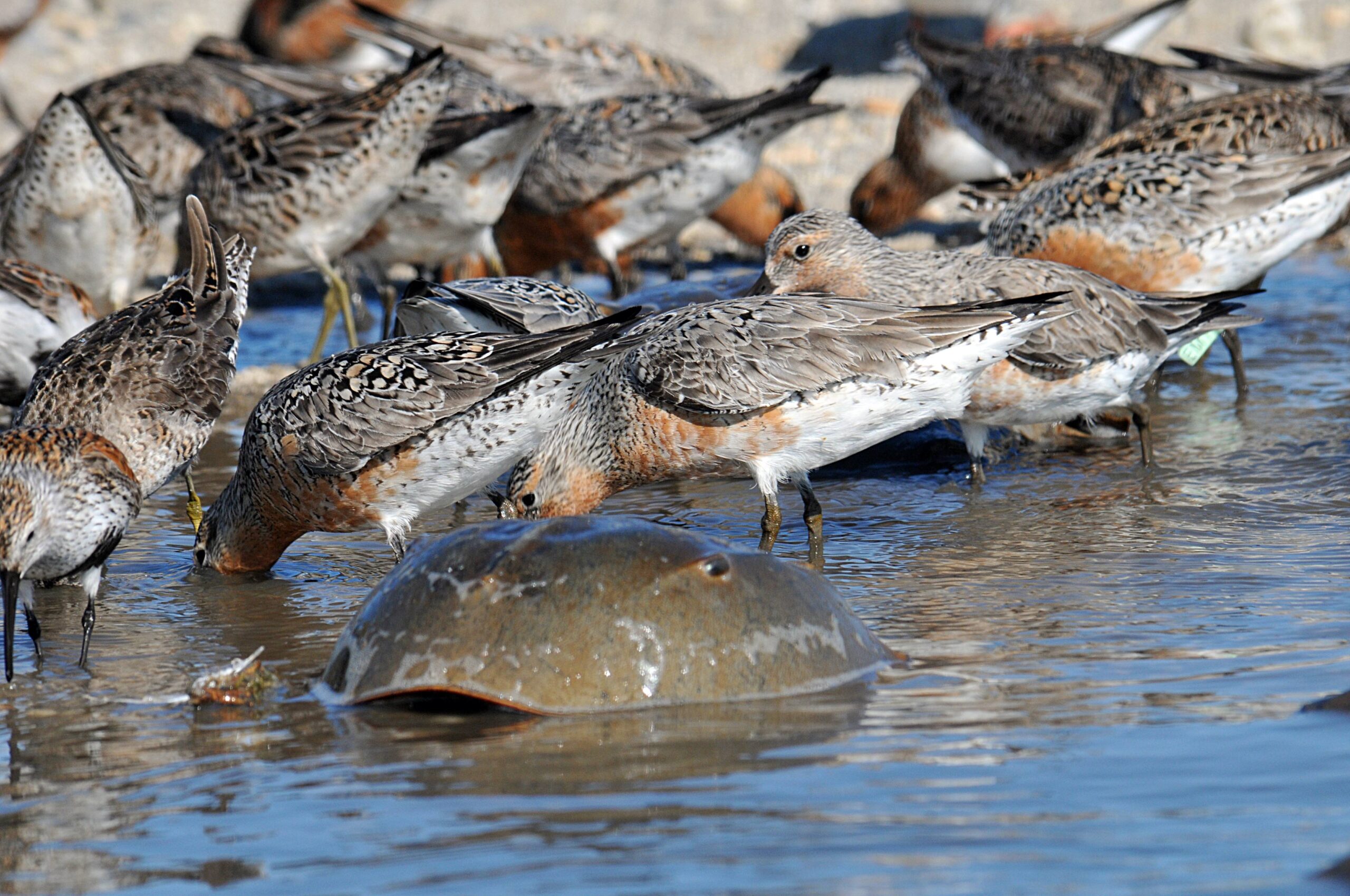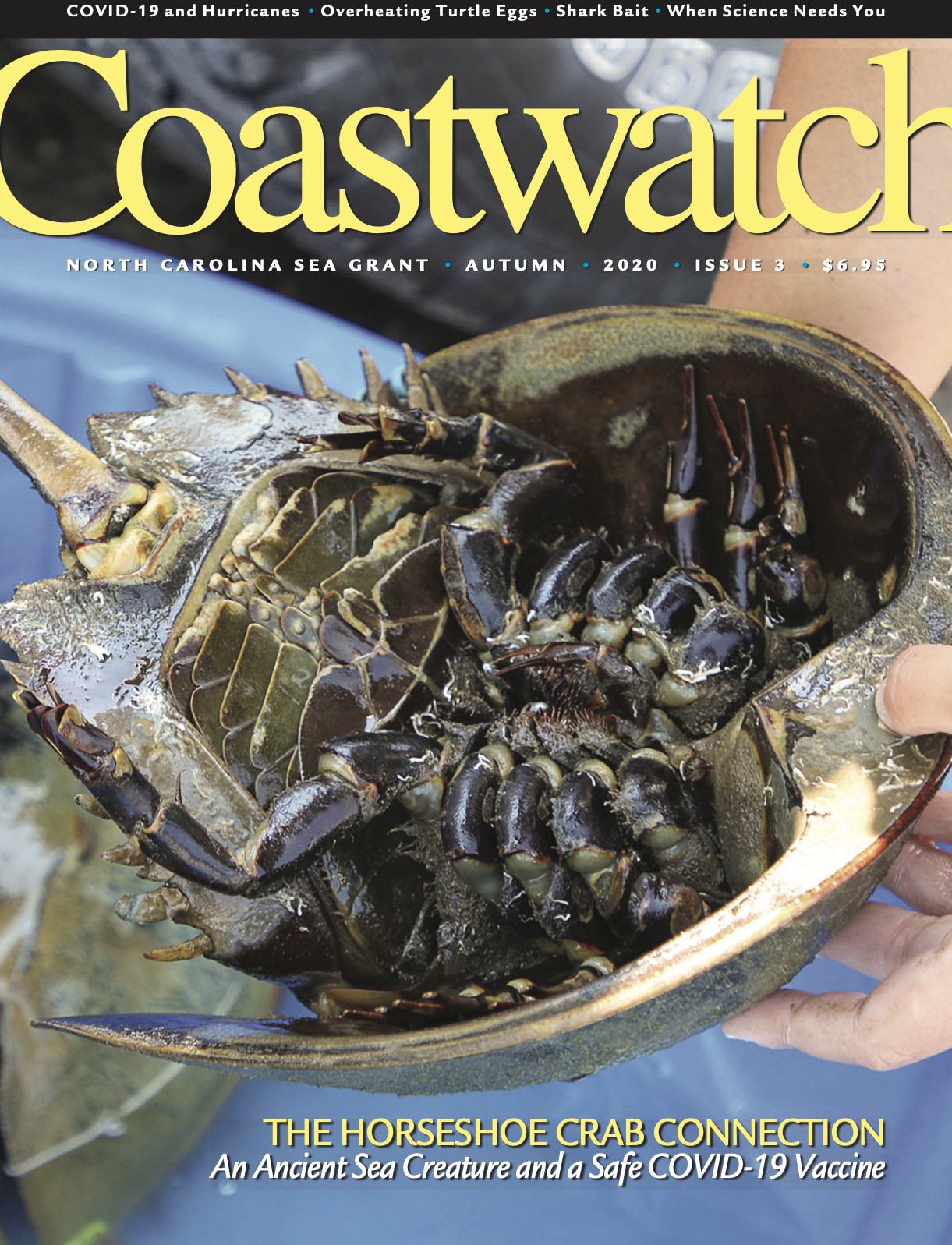Free Educational Resources Dive Deeper into Coastwatch Magazine Articles

FOR IMMEDIATE RELEASE
Contact:
Katie Mosher, communications director, kmosher@ncsu.edu
Terri Kirby Hathaway, marine education specialist, terri_hathaway@ncsu.edu
North Carolina Sea Grant has debuted a new educational resource for grades 6 through 12. Coastwatch Classroom expands on select articles from Coastwatch magazine through a series of guiding questions and a comprehensive list of related reading materials.
Each Coastwatch Classroom edition also includes the relevant learning standards under the North Carolina Standard Course of Study and Ocean Literacy Standards.
“We hope this new resource will open teachers’ and students’ eyes to the fascinating and important coastal research going on in their own state,” says Terri Kirby Hathaway, North Carolina Sea Grant’s marine education specialist, who developed Coastwatch Classroom.
 So far, two Coastwatch Classroom installments are available; each connects to an article in the Autumn issue of Coastwatch, N.C. Sea Grant’s flagship publication. The inaugural edition explores how researchers are examining a way to sustainably harvest horseshoe crab blood for an important medical safety test. The second examines how citizen science can enhance water quality monitoring.
So far, two Coastwatch Classroom installments are available; each connects to an article in the Autumn issue of Coastwatch, N.C. Sea Grant’s flagship publication. The inaugural edition explores how researchers are examining a way to sustainably harvest horseshoe crab blood for an important medical safety test. The second examines how citizen science can enhance water quality monitoring.
“I routinely hear from teachers how valuable free, trusted STEM educational materials are,” Hathaway says. “The Sea Grant communications team is dedicated to Coastwatch, and I’m excited to repurpose that quality content for them through Coastwatch Classroom.”
For easy access, Coastwatch Classroom and related articles all are available online at go.ncsu.edu/coastwatch-classroom.
In developing the new resource, Hathaway builds on the success of Curriculum Connection, which delves into articles from the South Carolina Sea Grant Consortium’s quarterly publication, Coastal Heritage.
“We believe that connecting students along the K-12 pipeline with ongoing research is key to not only increasing their fundamental understanding of certain science concepts but also ‘hooking’ them on to science — marine or otherwise — as a potential career in the future,” says Elizabeth Vernon Bell, marine education specialist for the South Carolina Sea Grant Consortium.
“Coastwatch is a terrific magazine and developing an educational supplement like Curriculum Connection will enable the publications’ information to reach a broad audience,” she adds.
The launch of Coastwatch Classroom adds to a growing effort among various Sea Grant programs to provide educational content that will enhance virtual learning during the pandemic. “As an educator,” Bell says, “it’s been inspiring to see how the Sea Grant network as a whole has risen to the challenge of developing online content and retooling field-based and classroom-based programming to an impactful virtual experience.”
Have you used Coastwatch Classroom with your students? Let North Carolina Sea Grant know what you think. Email Terri Kirby Hathaway at terri_hathaway@ncsu.edu.
Photo: Red knots are migrating shorebirds that feast on horseshoe crab eggs. By Gregory Breese/USFWS
##
North Carolina Sea Grant: Your link to research and resources for a healthier coast
- Categories:


